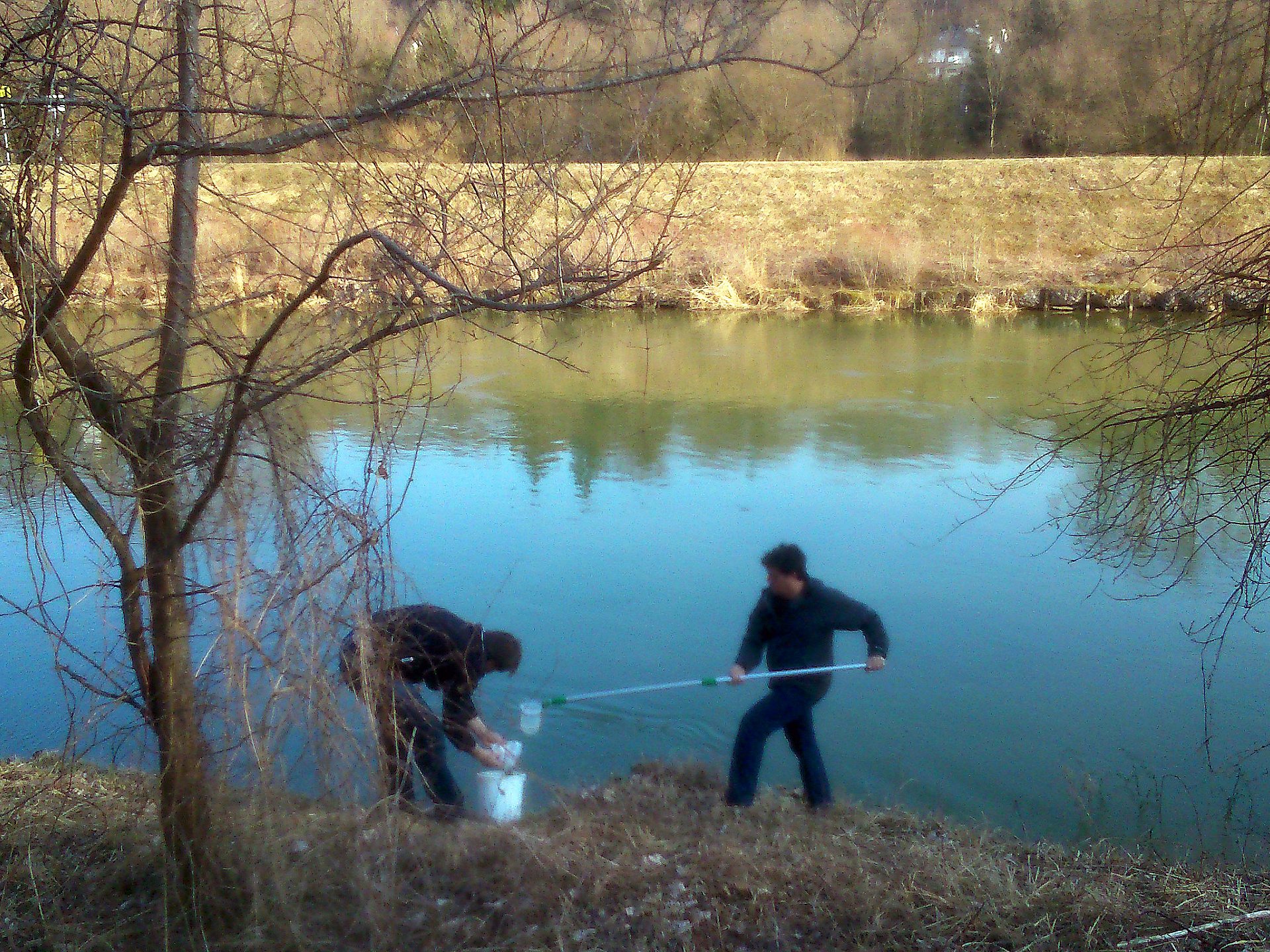"FOR-IDENT": Worldwide strategy for preventative water sample analysis
International hunt for unknown molecules

The available options for quickly identifying unknown molecules in water have been limited in the past. But the principle of preventative screening is essential when testing surface waters, which frequently serve as drinking water sources. A key goal is "screening to prevent or at least quickly identify potential risks".
Chemical analyses show that a single water sample can contain thousands different types of molecules. These substances stem from the surrounding environment, but are also introduced by humans in the form of industrial chemicals, pesticides, medications and household chemicals, as well as their respective degradation products. The amounts and composition of these molecules vary from region to region and from country to country, depending on the indigenous vegetation and the drugs, pesticides and chemicals approved for local use.
"Today, scientists can identify at most a few hundred of these thousands of molecules in routine analyses – and often only in specialized laboratories," explains Prof. Thomas Letzel, from the Chair of Urban Water Systems Engineering at Technische Universität München (TUM). "Yet many labs already have the technology to carry out these analyses – even non-specialized control labs. The problem usually lies in the lack of strategic solutions for assessing the results."
Molecular fingerprints for preventative water screening
To solve this problem, water specialists at the Bavarian Environmental Agency (LfU), the University of Applied Sciences Weihenstephan-Triesdorf (HSWT), the Baden-Württemberg special purpose water supply association Landeswasserversorgung and the TUM have developed the "STOFF-IDENT" database. This database was developed in the context of the "RISK-IDENT" project funded by the German Federal Ministry of Education and Research (BMBF). It was completed in March 2015 and now contains over 8,000 substances, together with their key chemical and physical characteristics. The database includes REACH-registered industrial chemicals, approved pharmaceuticals, pesticides and other substances from everyday products used by humans. It also lists degradation products found in the environment, like metabolites or transformation products.
Using this data, screening laboratories can identify unknown molecules faster. The technology deployed is referred to as non-target screening and generates "molecular fingerprints" that reflect the polarity and molecular mass of each identified molecule. "The properties stored in the database will now enable testers to identify a large number of previously unknown molecules, even in non-target screenings," continues Prof. Letzel.
Database to be extended worldwide
The follow-up project "FOR-IDENT", which is funded by the BMBF until 2017, aims to extend the database to include locally approved and utilized chemicals in the respective locations. The scientists also hope to bundle and harmonize all internationally used evaluation strategies. To this end, the project will include the manufacturers of analytical instruments, as well as laboratories around the globe. An open software platform in which the different evaluation strategies are combined and linked will evolve over the project lifespan. The open-access approach will ensure that companies, authorities and scientific institutions will have long-term, free and unlimited access to the evaluation tools and databases.
Data from measurements carried out by water analysts will remain available for future evaluations. This has a number of advantages. For example, when information is added to the database or new evaluation strategies are developed, previously taken samples must not be analyzed anew – the acquired data can retrospectively be analyzed. Laboratories, authorities and public works only need to archive the results of their analyses, not the actual samples. Consider the example of a trace substance that is identified as potentially harmful to marine life or as a threat to human health in drinking water: If the substance in question is found in archived samples, this information can be rapidly integrated into routine tests. This will also make it possible to determine where the substance entered the water and in which concentrations; and whether technical recovery measures need to be initiated.
"This will lay the foundation for a preventative water control system that will be deployed more and more as the number of new evaluation strategies grows," confirms Prof. Letzel.
"FOR-IDENT" develops international strategies
A major remaining challenge is ensuring that the analysis methods are deployed effectively so that structures can be determined and the respective substances identified conclusively. The aim of the "FOR-IDENT" project is, thus, to improve the efficiency and comparability of suspect and non-target analyses. To this end, the available tools will be bundled, quality requirements for the methodology defined and the processes and methodologies standardized.
To promote the discussion and harmonization of national and international strategies and workflows at global level the "FOR-IDENT" project will host regular conferences and workshops over the next two years. Among other events, the TUM scientists will organize a workshop to discuss transatlantic strategies at the 250th conference of the American Chemical Society from August 16 to 20, 2015 in Boston, Massachusetts.
"FOR-IDENT" is part of the BMBF-funded project "Risk Management for New Harmful Substances and Pathogens in the Water Cycle (RiSKWa)" in the special funding program "Sustainable Water Management (NaWaM)."
Download photo
Contact:
Technische Universität München
Prof. Thomas Letzel
Analytical Research Group (AFG)
Chair of Urban Water Systems Engineering (Prof. Drewes)
Tel.: +49 89 289 13780
E-Mail: t.letzel@tum.de
Further information:
Brief description of the FOR-IDENT project
Brief description of the RISK-IDENT project